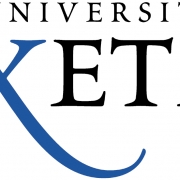Traditional universities acting as PHE institutions in Romania

Since 2012 an executive order issued by the Ministry of Education, Research, Youth and Sport in Romania (Ministry of Education, Research, Youth and Sport, Executive order no. 3163 / 01.02.2012) creates the legal framework that enables the universities to organize post university studies for long life learning and professional development. This is a good practice case because such a measure allows that a significant expertise in the field of higher education (namely the expertise of university staff) to be used / shared also in the field of professional education. The university staff is already familiarized with teaching techniques and with theoretical and scientific approaches of its respective fields, and transferring this valuable knowledge to an area previously destined only to professional education constitutes a good example of knowledge transfer.
This measure encountered a strong opposition on the behalf of the traditional providers of services related to lifelong learning activities, as they were afraid that the new programs developed by universities will put them out of business. The effective application of the ministerial order was postponed until 2015, and the first study programs organized by universities within this framework started around 2016/beginning of 2017.
Although the universities have the legal capability to provide lifelong learning activities, this is not their domain of expertise and the attendees are not their usual target group. Therefore, such activities are putting an extra challenge on the didactic personnel in terms of planning, teaching, scheduling etc.
In order to fully use this opportunity for the improvement of PHE it is crucial for the university to identify and to have access to a significant number of prospective students and also to provide relevant qualifications, recognised at national level.
The main actors involved in the process of providing courses specific to the PHE by the traditional universities are: the universities and their staff (teachers and administrative personnel for providing the courses and the logistic support), professional associations relevant for each field of activity (in order to endorse or to validate, from an informal point of view the proposed study program), other representative bodies (NGOs active within a specific domain, ethical associations etc. that might provide both endorsement but also access to a large number of prospective students), and the ministries such as the Ministry of education and the Ministry of labour (for recognising the qualifications). Last, but not least, co-opting several large or prestigious economic agents within the area would be useful as they are the prospective employers.
The main resources needed are: human resources (teaching staff, administrative staff, staff involved in promoting the new educational programme by ways of networking and online communication), location (provided by the university), educational resources (this requires time and expertise), educational tools (new technology and classical pen & paper).




